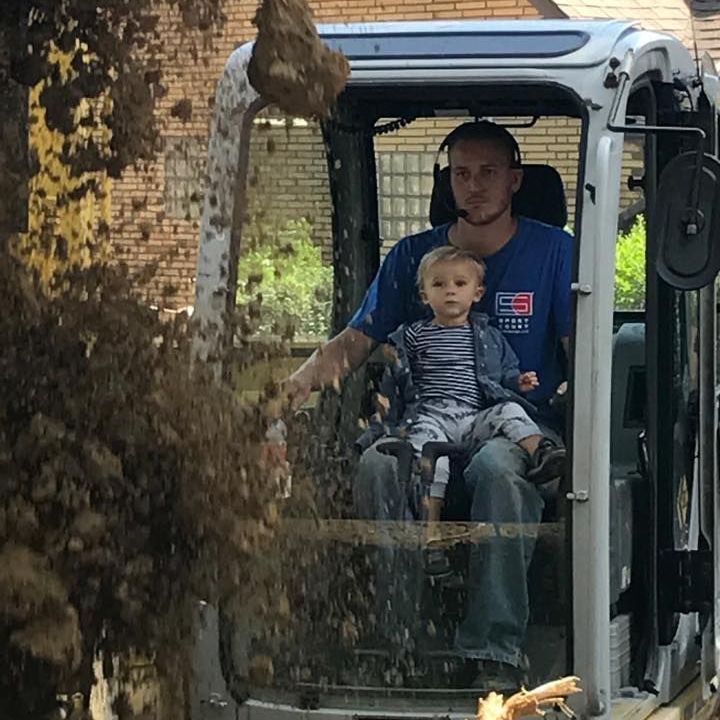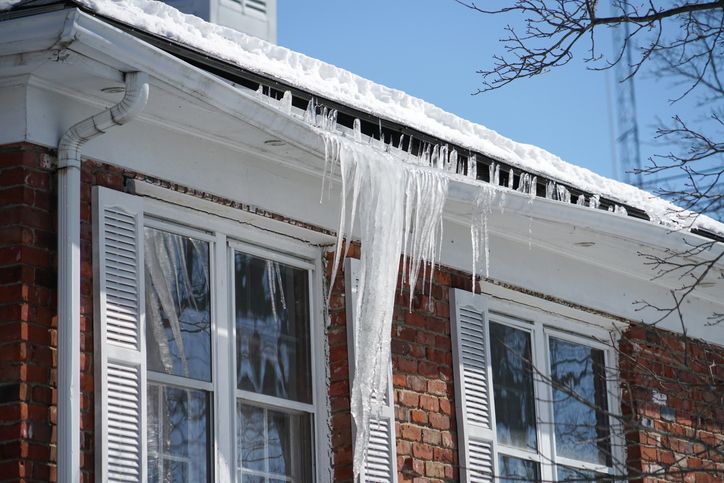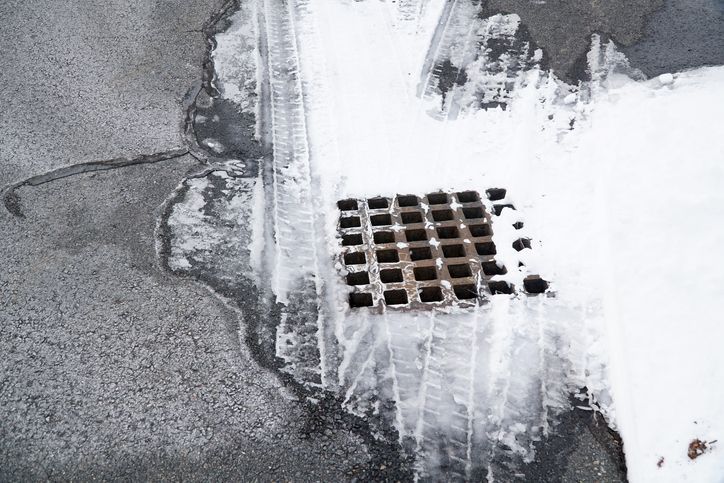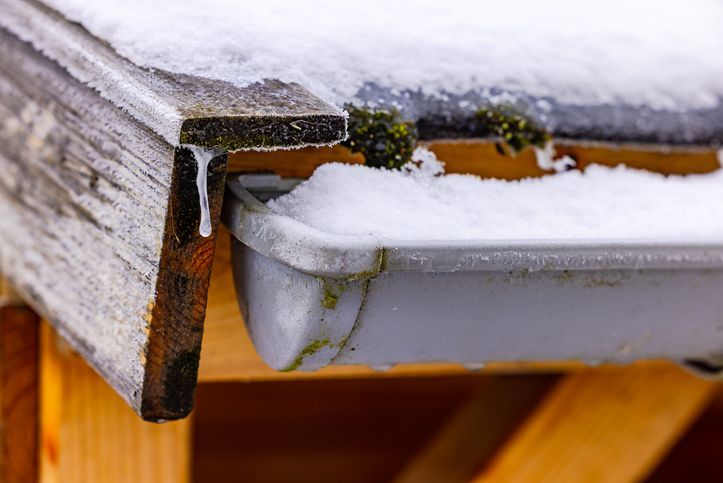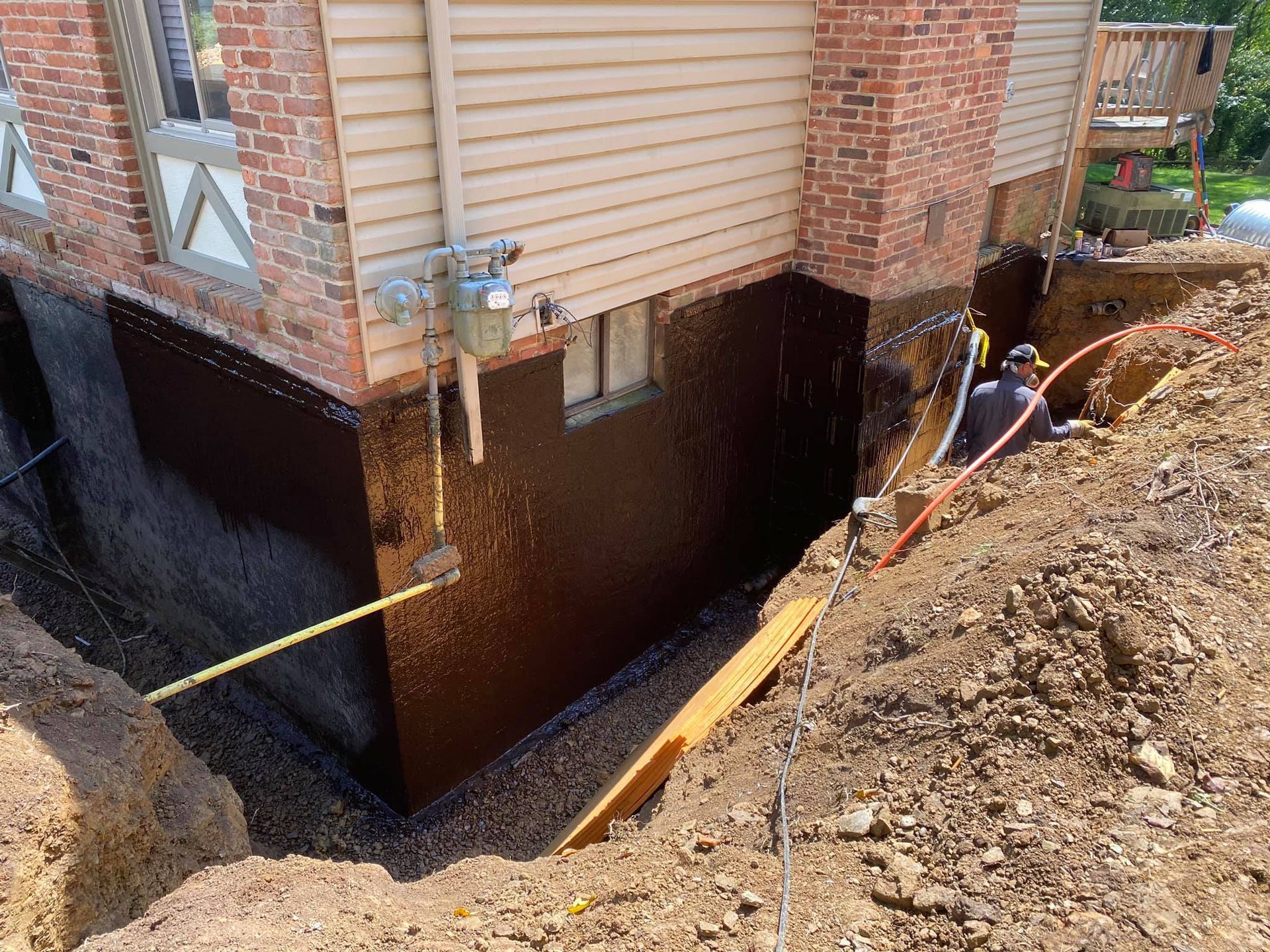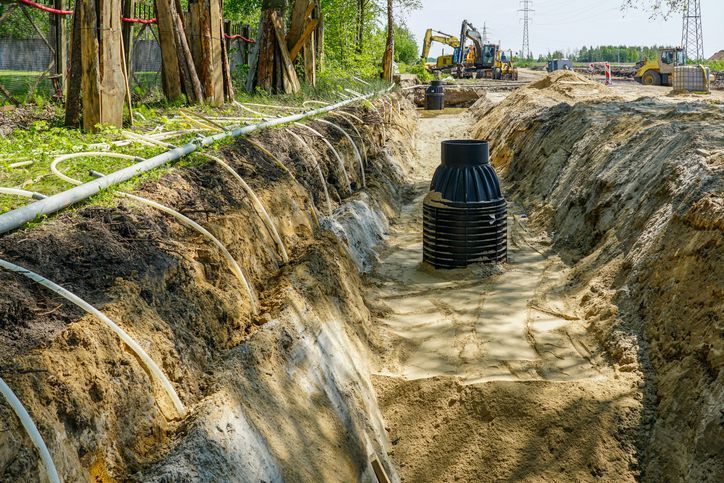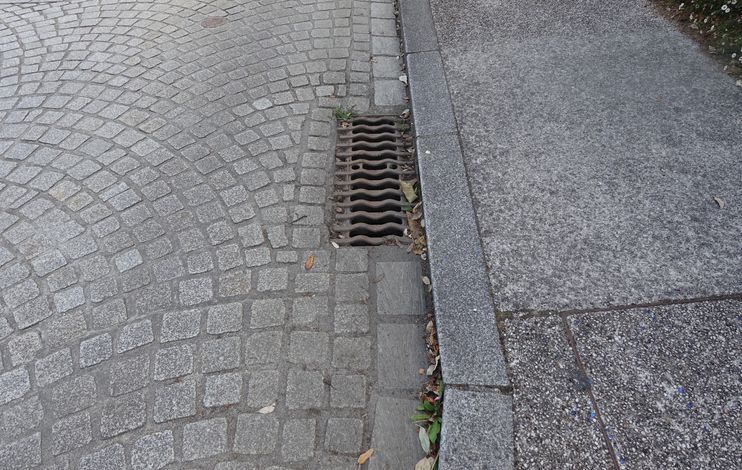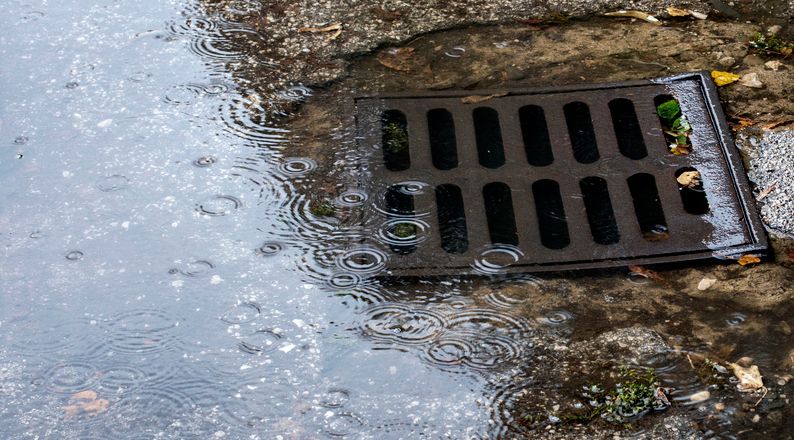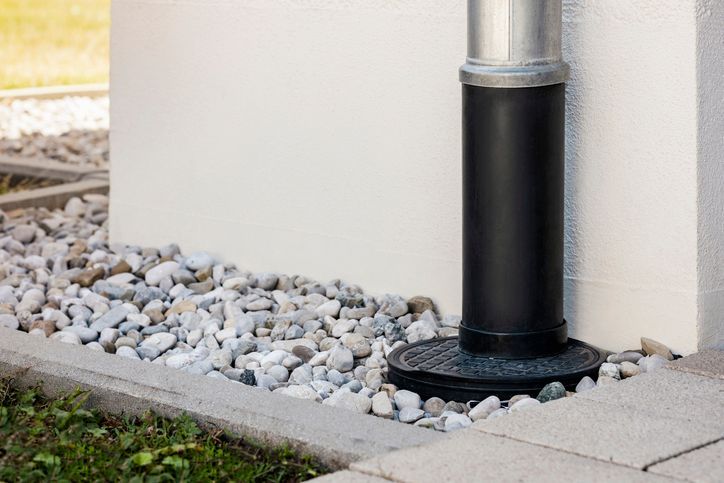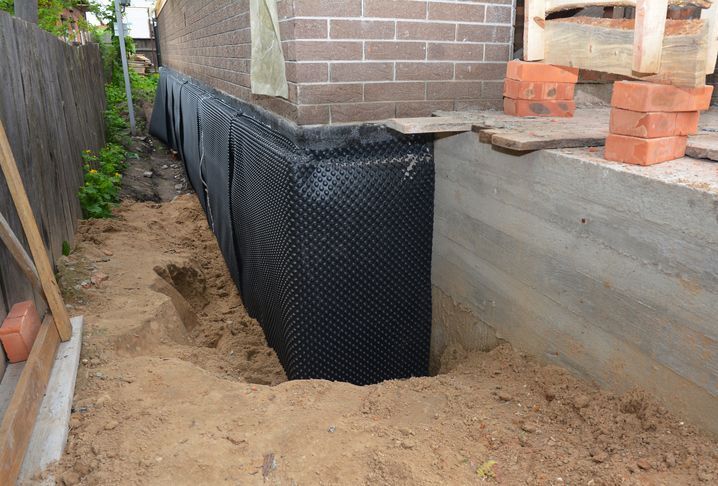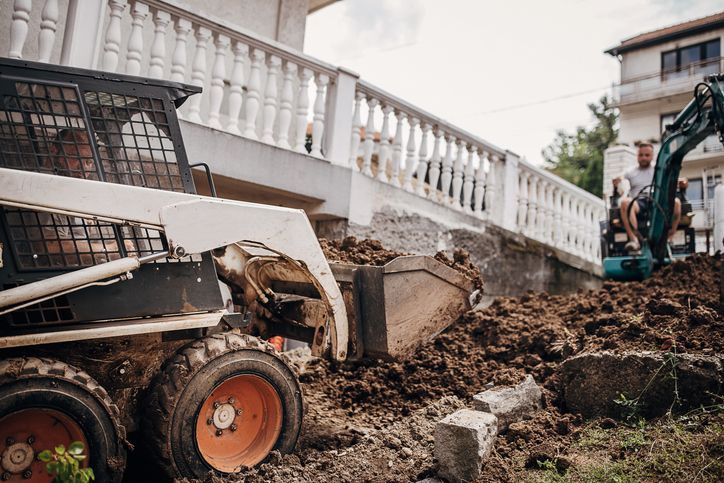How Fall Leaves Could Be Causing Water Damage to Your Home
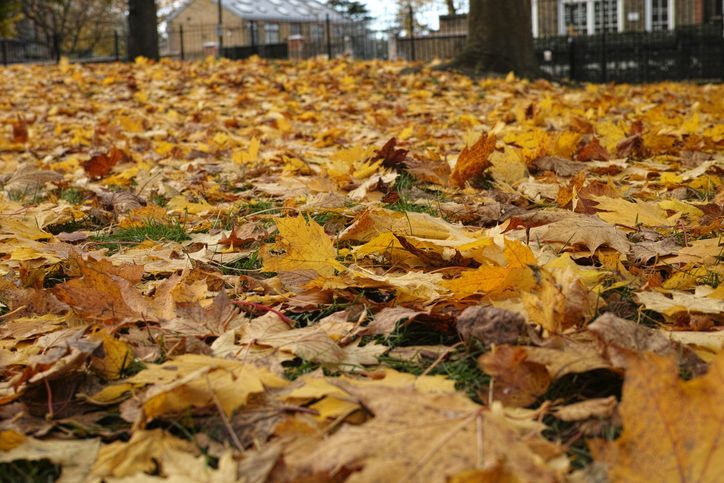
When Pittsburgh's hillsides begin to transform from green to yellow and orange, it's easy to see autumn as a time for comfort, not concern. But beautiful autumn leaves bring the risk of water damage to your home.
Leaves seem harmless when they blanket your lawn or swirl down the driveway, but when combined with fall rain, they can disrupt how water drains away from your home. Blocked gutters, downspouts, and yard drains stop functioning correctly, causing rainwater to pool near the foundation, seep into basements, or flood parts of the yard.
For homeowners in Western Pennsylvania, where heavy rain, sloped lots, and clay soil are common, drainage issues can escalate quickly. The key is understanding why fallen leaves create such problems and taking action before the first winter freeze locks everything in place.
1. Leaves and Downspouts: A Recipe for Overflow
Gutters are your home's first line of defense against water damage. Their job is simple: collect rainwater from the roof and direct it safely through downspouts away from your foundation. But during the fall, this system is under pressure.
As leaves accumulate, they form dense mats that block water flow. Rainwater then spills over the sides of the gutters instead of moving through them. This overflow often lands right at the base of your house—exactly where you don't want water to settle.
When water collects around the foundation, three problems typically follow:
Basement seepage: Water seeks the path of least resistance. Once it saturates the soil near your foundation, it can seep into small cracks or joints where the basement wall meets the floor. Even a slow leak can lead to dampness, musty odors, or mold growth.
Soil erosion: Consistent overflow washes away topsoil and the compacted earth supporting your home's structure. Over time, this can create uneven settling or cracking.
Foundation stress: As water cycles between freezing and thawing, the expansion of moisture in the soil can place pressure on the foundation walls. Small cracks become larger, and repairs become more expensive.
In Pittsburgh's older neighborhoods, where many homes sit on slopes, water runoff from overflowing gutters can travel quickly toward basements. Keeping downspouts clear and ensuring they discharge several feet away from the house is one of the most cost-effective ways to protect your home.
2. Clogged Surface Drains and French Drains
Beyond gutters, many Pittsburgh-area homes rely on surface drains, catch basins, or French drains to divert water away from low-lying areas. These systems collect surface water and redirect it underground, keeping yards and foundations dry.
However, they're especially vulnerable during the fall. Leaves, twigs, and mulch can collect on the surface grates of catch basins or get washed into gravel-lined French drains. Once inside, debris breaks down into organic sludge, which restricts the flow through the pipes.
When these systems clog, homeowners often notice:
- Water pooling in low areas: After rain, water lingers on lawns or driveways far longer than it should.
- Saturated soil: Overly wet ground can smother grass roots and create muddy, unusable spots in the yard.
- Surface flooding: In severe cases, water backs up toward the home, overwhelming landscaping and entering through basement windows or cracks.
It's important to understand that French drains and catch basins aren't "set-it-and-forget-it" systems. Even a well-installed drain can lose effectiveness if not maintained. A fall inspection and cleanout ensure that your investment continues to work through winter and spring's heavy precipitation.
3. The Hidden Effects: Mold, Lawn Rot, and Foundation Damage
When water doesn't drain properly, the visible issues, like puddles or leaf buildup, are only the start of the issue, as the more serious damage happens gradually.
Mold and Mildew Growth
Trapped moisture creates a damp environment ideal for mold spores. These can form in basement walls, crawl spaces, or even behind drywall, where leaks are unnoticed. Mold damages materials and affects indoor air quality, posing health concerns over time.
Lawn and Landscape Decline
Leaves that you don't remove before winter can suffocate the lawn because, as they decompose, they trap moisture and block sunlight. This will lead to lawn rot and bare patches come spring. Over time, this can also invite pests and fungal growth that spread to healthy areas of the yard.
Foundation Cracking and Freeze-Thaw Stress
Water that seeps into cracks or sits against your foundation during late fall becomes a problem once temperatures drop. As it freezes, it expands—widening cracks and allowing even more water to enter. Each cycle of freezing and thawing compounds the issue, potentially turning a minor repair into a significant expense by spring.
These hidden effects often catch homeowners off guard because the signs appear gradually. A simple drainage inspection in the fall can identify early warning signs before the damage worsens.
4. What You Can Do Right Now
Preventing leaf-related water damage doesn't require major repairs. A few practical steps, done consistently, can help protect your home and yard throughout the entire season.
1. Clear Gutters and Downspouts Regularly
After every significant leaf fall, or at least twice during autumn, check and clear your gutters. If you're not comfortable working from a ladder, work with a professional cleaning service. Installing gutter guards can also reduce buildup, but still requires occasional maintenance.
2. Inspect Your Yard After Heavy Rain
Walk around your property during or right after a rainfall. Pay attention to areas where water pools or drains slowly. Our team can often correct these low spots by making grading adjustments or implementing small extensions to existing drainage systems.
3. Check All Surface Drains and Pop-Up Emitters
If your yard has grates, catch basins, or pop-up emitters that release water from your buried pipes, make sure they're clear of leaves and mulch. Even a thin layer of debris can block flow and cause water to back up.
4. Schedule a Drainage Inspection Before the First Freeze
Once the ground freezes, it becomes difficult to access or repair underground systems. With a fall inspection, we can ensure everything is clear and functional before winter moisture and snowmelt arrive. A local Pittsburgh drainage contractor can use tools like camera inspections to identify blockages you can't see from the surface.
These small tasks can make the difference between a dry basement and a costly repair in the spring.
How Pittsburgh Drain Guys Can Help
At Pittsburgh Drain Guys, we help homeowners understand and solve drainage problems before they lead to structural damage. Our team specializes in diagnosing how seasonal debris and grading issues affect water movement around your property.
Here's what we can do for you this fall:
Leaf-Related Clog Removal
We'll clear gutters, downspouts, and surface drains to restore proper flow. This service is especially valuable before winter because it prevents blockages that can freeze solid once temperatures drop.
French Drain and Surface Drain Maintenance
Our technicians can locate problem areas, flush out debris, and test how water moves through your system. If your yard has been staying wetter than usual, it may be a sign that the drain field or pipe is partially blocked.
Downspout Rerouting and Extensions
Many homes have downspouts that discharge too close to the foundation. We can reroute these lines or add extensions that carry water farther away, reducing the chance of basement leaks or erosion.
Full Drainage System Installation or Replacement
If recurring clogs or pooling indicate a design issue, we can install a complete drainage system customized to your property's layout and soil conditions. Whether you need a French drain, catch basin, or surface trench, we'll ensure it directs water safely away from your home.
Our experience working in Pittsburgh's varied terrain—from Mount Lebanon to Fox Chapel—means we understand how local soil types, slopes, and rainfall patterns impact drainage performance.
Don't Wait Until the Ground Freezes
Once the first freeze arrives, drainage issues become more challenging to repair and more expensive to address. Water that can't move freely now will turn to ice, putting stress on gutters, downspouts, and foundations.
Scheduling a fall drainage check-up provides peace of mind throughout winter and prevents problems from resurfacing in spring. Pittsburgh homeowners who have a fall inspection done save thousands in potential repairs while keeping their properties safe and dry.
Take the Next Step by Calling Pittsburgh Drain Guys Today!
Let Pittsburgh Drain Guys clear out the clogs before they become costly problems. Contact us today to book your inspection and ensure your home's drainage system is ready for the upcoming season.
